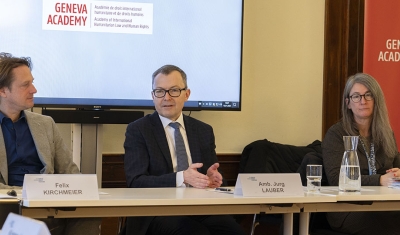The United Nations (UN) Guiding Principles on Business and Human Rights (UNGPs) provide a global normative framework, backed by UN member states, that clarifies state duties and business responsibilities related to business related-human rights abuse. They are the common reference point for efforts to address adverse human rights impacts arising in a business context and have been widely integrated into both public and private sector policy frameworks.
These principles are of particular importance in conflict-affected regions, where the worst forms of business-related human rights abuse tend to happen.
As part of its mandate to promote the UN Guiding Principles, the UN Working Group on Business and Human Rights (UNWG) published a report aimed at clarifying the practical steps that states and business enterprises should take to implement the UNGPs in conflict and post-conflict contexts.
The report Business, Human Rights and Conflict-Affected Regions: Towards Heightened Action (A/75/212) identifies a series of policies and tools to ensure that business activity does not lead to human rights abuse, stimulate or exacerbate conflict or hinder peacebuilding. It also highlights two areas requiring further work: the need for more granularity in the existing guidance for states, businesses, and other relevant actors; and the need to continue addressing existing gaps and policy misalignments across the various actors.
The Research
This research aimed at supporting the UNWG to develop specific guidance for states, international and other organizations, and businesses in order to foster business respect for human rights in conflict-affected regions. It is part of a wider engagement with various UN Special Procedures that involve reinforced research, stakeholder outreach, and organization of Geneva-based events and consultations.










